Arts & Sciences welcomes the 45 new faculty members who have joined our community in 2024.
Humanities
 Cinzia Arruzza, Maria Stata Professor of Classical Greek Studies, taught at the New School for Social Research in NYC before arriving at Boston University. She also held visiting positions at her alma mater – University of Rome Tor Vergata –, at the University of Piemonte Orientale, and at the University of Rome La Sapienza. She has been the recipient of two Alexander von Humboldt Foundation fellowships, both at the University of Bonn.
Cinzia Arruzza, Maria Stata Professor of Classical Greek Studies, taught at the New School for Social Research in NYC before arriving at Boston University. She also held visiting positions at her alma mater – University of Rome Tor Vergata –, at the University of Piemonte Orientale, and at the University of Rome La Sapienza. She has been the recipient of two Alexander von Humboldt Foundation fellowships, both at the University of Bonn.
She has authored books in the history of ancient philosophy (A Wolf in the City. Tyranny and the Tyrant in Plato’s Republic, OUP 2018; Plotinus. Ennead II 5. On What is Potentially and What Actually, Parmenides Press 2015; Les Mésaventures de la théodicée. Plotin, Origène et Grégoire de Nysse, Brepols 2011) and in feminist theory (with Tithi Bhattacharya and Nancy Fraser, Feminism for the 99%. A Manifesto, Verso, 2019; with Lidia Cirillo, Storia delle storie del femminismo, Edizioni Alegre 2017; Dangerous Liaisons, Marriages and Divorces of Marxism and Feminism, The Merlin Press 2013). She is currently working on a new book manuscript titled Socrates’ Women. Virtue, the Soul and Sexual Difference in the Socratic Circle and Plato’s Dialogues (under contract with OUP) and French translation with Introduction and Commentary of Plotinus’ Ennead III 6 (under contract with Vrin).
 Pau Cañigueral Batllosera, Lecturer in Spanish, teaches courses on medieval and early modern Iberian literatures, with a specialization in the cultural exchanges in the Western Mediterranean. His research interests include Mediterranean Studies, medieval theories of hermeneutics and authorship, brief-narratives collections and translation. His first book project, Boccaccio and the Cultural Hybridity of the Neapolitan Court of Alfonso the Magnanimous (c. 1442-58), examines the role of Boccaccio’s opere minori in the multi-lingual literary production during the Aragonese age of the Kingdom of Naples. He has published articles in the rhetoric of the genre “infiernos de amor” in Castilian poetry and in the reformulation of Boccaccio’s anti-feminine discourse in Catalan prose.
Pau Cañigueral Batllosera, Lecturer in Spanish, teaches courses on medieval and early modern Iberian literatures, with a specialization in the cultural exchanges in the Western Mediterranean. His research interests include Mediterranean Studies, medieval theories of hermeneutics and authorship, brief-narratives collections and translation. His first book project, Boccaccio and the Cultural Hybridity of the Neapolitan Court of Alfonso the Magnanimous (c. 1442-58), examines the role of Boccaccio’s opere minori in the multi-lingual literary production during the Aragonese age of the Kingdom of Naples. He has published articles in the rhetoric of the genre “infiernos de amor” in Castilian poetry and in the reformulation of Boccaccio’s anti-feminine discourse in Catalan prose.
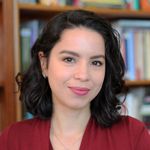 Mônica Carvalho Gimenes, Visiting Assistant Professor in Spanish & Portuguese,
Mônica Carvalho Gimenes, Visiting Assistant Professor in Spanish & Portuguese,
received her Ph.D. in Hispanic Languages and Literatures from UC Berkeley. She holds an M.A. in Spanish and a B.A. in Multimedia Studies: Journalism from Florida Atlantic University. Her teaching and research interests include 20th and 21st century Latin American narrative, crime fiction, body politics, transnational feminisms, and decolonial theories. Her dissertation examines femicidal violence and feminist resistance in the Southern Cone (including Brazil). She has conducted pre-dissertation research in Brazil and in Portugal, and she has presented her work in conferences and colloquia in the U.S., Brazil, Spain, and Guatemala. Mônica is an experienced teacher of Spanish and Portuguese languages and literatures, and a recipient of the 2020-2021 Outstanding Graduate Student Instructor Award at UC Berkeley.
 Jenna Conklin, Visiting Assistant Professor of Linguistics, has research experience in second language acquisition, vowel acoustics, laboratory phonology, and Germanic languages. Her dissertation research at Purdue University focused on understanding the synchronic interactions between similar phonetic and phonological processes, particularly the influence of vowel harmony on vowel-to-vowel coarticulation, with individual case studies in Spanish, Tatar, and Hungarian.
Jenna Conklin, Visiting Assistant Professor of Linguistics, has research experience in second language acquisition, vowel acoustics, laboratory phonology, and Germanic languages. Her dissertation research at Purdue University focused on understanding the synchronic interactions between similar phonetic and phonological processes, particularly the influence of vowel harmony on vowel-to-vowel coarticulation, with individual case studies in Spanish, Tatar, and Hungarian.
Her current work is divided among two research areas. One strand focuses on the acquisition of vowel reduction by bilinguals, primarily considering the acquisition of English reduced vowels by Spanish native speakers. Studies in this vein examine the acoustics of vowel reduction by bilinguals and its relationship to various extra-linguistic factors such as language attitudes, age of acquisition, and language exposure. Future work will consider whether the acquisition of reduction leads to phonetic drift in the L1.
 Esteban Crespo Jamarillo, Visiting Assistant Professor of Spanish, received his Ph.D. from the Early Modern Studies Program and the Department of Spanish and Portuguese at Yale. His research focuses on the history of gender and sexuality in the early modern Iberian worlds in relation to the history of the book, contemporary critical thought, and colonial studies. Esteban’s most recent scholarly contributions have appeared or are forthcoming in journals such as Nueva Revista de Filología Hispánica or in edited books such as Logomotives: Words that Change the Premodern World (Edinburgh University Press) and The Routledge Companion to Race in Early Modern Artistic, Material, and Visual Production. Esteban is also passionate about reaching audiences beyond academia through his writing and public speaking. His dissertation focuses upon the intimate words of Early Modern queer folks, historical and fictional, in Spain, Portugal, and the American viceroyalties.
Esteban Crespo Jamarillo, Visiting Assistant Professor of Spanish, received his Ph.D. from the Early Modern Studies Program and the Department of Spanish and Portuguese at Yale. His research focuses on the history of gender and sexuality in the early modern Iberian worlds in relation to the history of the book, contemporary critical thought, and colonial studies. Esteban’s most recent scholarly contributions have appeared or are forthcoming in journals such as Nueva Revista de Filología Hispánica or in edited books such as Logomotives: Words that Change the Premodern World (Edinburgh University Press) and The Routledge Companion to Race in Early Modern Artistic, Material, and Visual Production. Esteban is also passionate about reaching audiences beyond academia through his writing and public speaking. His dissertation focuses upon the intimate words of Early Modern queer folks, historical and fictional, in Spain, Portugal, and the American viceroyalties.
 Alex Denison, Visiting Assistant Professor in CIMS, is a scholar-practitioner whose work centers on the aesthetic and political ramifications of digital cinema. His research interests include classical film theory, critical theory, documentary, experimental cinema, film and the environment, political cinema, and post-filmic film theory. He has taught courses in both film studies and film and video production on topics such as digital cinema, film theory, film criticism, and political cinema. In addition to film scholarship, he also works in film programming and film production. Projects he has worked on have screened at the Cannes Film Festival, the Leeds International Film Festival, and Anthology Film Archives.
Alex Denison, Visiting Assistant Professor in CIMS, is a scholar-practitioner whose work centers on the aesthetic and political ramifications of digital cinema. His research interests include classical film theory, critical theory, documentary, experimental cinema, film and the environment, political cinema, and post-filmic film theory. He has taught courses in both film studies and film and video production on topics such as digital cinema, film theory, film criticism, and political cinema. In addition to film scholarship, he also works in film programming and film production. Projects he has worked on have screened at the Cannes Film Festival, the Leeds International Film Festival, and Anthology Film Archives.
 Daigengna Duoer, Assistant Professor of Religion, is a historian specializing in religion in modern East and Inner Asia, with a particular focus on transnational Tibeto-Mongolian Buddhism in the twentieth century. She is an Assistant Professor in the Department of Religion at Boston University and teaches classes on Buddhism and East Asian religions. She earned her Ph.D. in Religious Studies at the University of California, Santa Barbara and M.A. in Buddhist Studies from the University of Toronto.
Daigengna Duoer, Assistant Professor of Religion, is a historian specializing in religion in modern East and Inner Asia, with a particular focus on transnational Tibeto-Mongolian Buddhism in the twentieth century. She is an Assistant Professor in the Department of Religion at Boston University and teaches classes on Buddhism and East Asian religions. She earned her Ph.D. in Religious Studies at the University of California, Santa Barbara and M.A. in Buddhist Studies from the University of Toronto.
Her forthcoming book, Buddhism Beyond the Nation and the Empire: Transnational Buddhists in Modern East and Inner Asia, investigates Buddhism’s roles within and beyond the competing nation and empire-building projects that took place in early 20th century Inner Mongolia and Manchuria, regions sandwiched between the expansionist ambitions of Republican China, the Japanese Empire, and the Soviet Union.
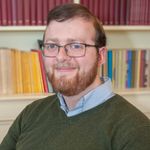 Christopher Ell, Visiting Assistant Professor of Classical Studies, is a cultural historian whose research and teaching interests center on the history, literature, and material culture of Greece and Rome within their broader Mediterranean and Near Eastern contexts. His current research examines dining and drinking cultures in the interconnected world of the Mediterranean and Near East, ca. 800-450 BCE, exploring the close relationship between social organization and dining and drinking practice. He employs a comparative framework to consider how the entangled peoples of the Mediterranean and Near East constructed social distinction and cultural identity through their dining and drinking practices. With a more specific focus on the cultural worlds of the Neo-Assyrian and Achaemenid empires and the Greek, Etruscan, and Phoenician city-states (and their multiethnic colonial settlements), his research examines the role of food culture in constructing cultural and ethnic identity.
Christopher Ell, Visiting Assistant Professor of Classical Studies, is a cultural historian whose research and teaching interests center on the history, literature, and material culture of Greece and Rome within their broader Mediterranean and Near Eastern contexts. His current research examines dining and drinking cultures in the interconnected world of the Mediterranean and Near East, ca. 800-450 BCE, exploring the close relationship between social organization and dining and drinking practice. He employs a comparative framework to consider how the entangled peoples of the Mediterranean and Near East constructed social distinction and cultural identity through their dining and drinking practices. With a more specific focus on the cultural worlds of the Neo-Assyrian and Achaemenid empires and the Greek, Etruscan, and Phoenician city-states (and their multiethnic colonial settlements), his research examines the role of food culture in constructing cultural and ethnic identity.
He completed his B.S. in Physics and Classics at Yale in 2012 and worked as an IT consultant before joining Brown’s Ancient History program, where he received his PhD in 2023. He has taught courses in Greek and Roman history and culture, as well as Latin and ancient Greek.
 Rafael Hernández, Visiting Assistant Professor of English, is a Visiting Assistant Professor of English at Boston University. His research considers modernism’s interest in embodiment—notably, how modernism envisioned the body as under regular threat of disease, disability, gender flux, and racial slippage. Throughout his work, he locates the medical and quasi-medical origins undergirding long-form narratives about health and disability in the early twentieth century. Nineteenth century socio-medical discourses rapidly reached a fever pitch of paranoia in the moment of early modernism and newly framed the body as the site of social and moral deviance, from disease and disability to miscegenation and gender play. In his research, he traces this story as rendered in the literature and popular discourse of the time to show how the political, social, and cultural instability of the modernist moment was attached to disruptions in bodies along with their representations in art and literature.
Rafael Hernández, Visiting Assistant Professor of English, is a Visiting Assistant Professor of English at Boston University. His research considers modernism’s interest in embodiment—notably, how modernism envisioned the body as under regular threat of disease, disability, gender flux, and racial slippage. Throughout his work, he locates the medical and quasi-medical origins undergirding long-form narratives about health and disability in the early twentieth century. Nineteenth century socio-medical discourses rapidly reached a fever pitch of paranoia in the moment of early modernism and newly framed the body as the site of social and moral deviance, from disease and disability to miscegenation and gender play. In his research, he traces this story as rendered in the literature and popular discourse of the time to show how the political, social, and cultural instability of the modernist moment was attached to disruptions in bodies along with their representations in art and literature.
Alongside his research, he teaches courses in British and Irish modernism, nineteenth- and twentieth-century Anglophone literature, and special topics courses on disability studies and the works of James Joyce. Over the years, he has taught at the University of Florida, Oklahoma State University, and now Boston University. His courses are discussion based and aim to cultivate student-led inquiry and dialogue.
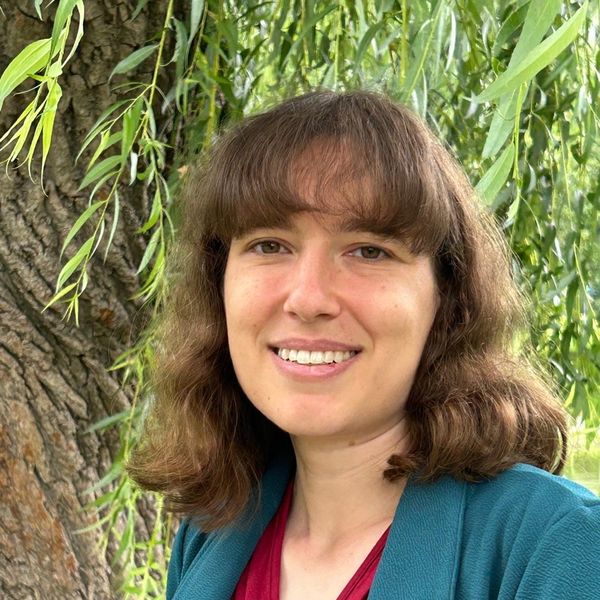
Emily Glider, Visiting Assistant Professor of English teaches Shakespeare, early modern literature, and performance studies. Her research explores cultural diplomacy in the early modern period— the circulation of literature, performance, and the arts as a strategy of international outreach. She asks how artists—and their art—might be said to mediate, negotiate, or re
present, moving across boundaries of culture, language, and nation to reach new audiences in the early modern world. She is interested in the social, cultural, and political negotiations that mark the lives and careers of itinerant actors, as well as their translation of styles, genres, texts, and performance techniques for international audiences speaking different languages and bringing different cultural fluencies. Her research is focused on translation, adaptation, and transnational theater in early modernity, but my approach draws inspiration from scholarship in contemporary performance studies, including the insights of living theater practitioners reflecting on their own medium.
 Alyssa Hunziker, Assistant Professor of English, is a specialist in Native American and Indigenous literature and U.S. empire studies. Her book project, Histories in Common: Indigenous Literatures and the Extra Archives of U.S. Empire, studies moments of historical convergence between global Indigenous communities in literature—from Native North America to the Philippines, Guam, the Marshall Islands, and Viet Nam—connecting the U.S.’s occupation of the continent to its Pacific empire. Histories in Common argues that U.S. empire inadvertently created possibilities for alliance and exchange across differently colonized Indigenous nations, and that contemporary Native American and Indigenous authors unravel such connections to other Indigenous communities in the wake of empire.
Alyssa Hunziker, Assistant Professor of English, is a specialist in Native American and Indigenous literature and U.S. empire studies. Her book project, Histories in Common: Indigenous Literatures and the Extra Archives of U.S. Empire, studies moments of historical convergence between global Indigenous communities in literature—from Native North America to the Philippines, Guam, the Marshall Islands, and Viet Nam—connecting the U.S.’s occupation of the continent to its Pacific empire. Histories in Common argues that U.S. empire inadvertently created possibilities for alliance and exchange across differently colonized Indigenous nations, and that contemporary Native American and Indigenous authors unravel such connections to other Indigenous communities in the wake of empire.
Hunziker teaches courses in Native American literature, Indigenous studies, multi-ethnic American literature, and settler colonial studies. She serves on the editorial board of Studies in American Indian Literatures and is the former book review editor of American Indian Quarterly. With Mitch R. Murray she is the co-editor of a double special issue of College Literature, “Genres of Empire” (2023).
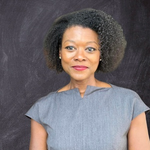 Koritha Mitchell, Professor of English, specializes in African American literature, violence throughout U.S. history and contemporary culture, and Black drama and performance. She examines how texts, both written and performed, have helped terrorized communities survive and thrive. Her study Living with Lynching: African American Lynching Plays, Performance, and Citizenship, 1890-1930 (University of Illinois Press, 2011) won book awards from the American Theatre and Drama Society and from the Society for the Study of American Women Writers.
Koritha Mitchell, Professor of English, specializes in African American literature, violence throughout U.S. history and contemporary culture, and Black drama and performance. She examines how texts, both written and performed, have helped terrorized communities survive and thrive. Her study Living with Lynching: African American Lynching Plays, Performance, and Citizenship, 1890-1930 (University of Illinois Press, 2011) won book awards from the American Theatre and Drama Society and from the Society for the Study of American Women Writers.
 Nicole Smythe-Johnson, Assistant Professor of History of Art & Architecture, recently completed her PhD at the University of Texas-Austin and specializes in Modern and Contemporary Art of the Caribbean. Her dissertation, “In Pursuit of a Subaltern Modernism: The Life and Work of John Dunkley,” considers the challenge that subaltern artists pose to canonical Euro-American narratives of modernism. Her work also addresses cultural exchange within the global South and the contribution that circum-Caribbean migrants made to the emergence of Black (inter)nationalisms in the early twentieth century.
Nicole Smythe-Johnson, Assistant Professor of History of Art & Architecture, recently completed her PhD at the University of Texas-Austin and specializes in Modern and Contemporary Art of the Caribbean. Her dissertation, “In Pursuit of a Subaltern Modernism: The Life and Work of John Dunkley,” considers the challenge that subaltern artists pose to canonical Euro-American narratives of modernism. Her work also addresses cultural exchange within the global South and the contribution that circum-Caribbean migrants made to the emergence of Black (inter)nationalisms in the early twentieth century.
 Zhuming Yao, Assistant Professor of World Languages & Literatures, works on classical Chinese literature, literary criticism, and comparative literary studies. After receiving his Ph.D. in East Asian Studies from Princeton University in 2023, Zhuming joined Swarthmore College as Visiting Assistant Professor of Chinese Literature. Zhuming’s dissertation examines speech representation across early Chinese writings and offers an account of the underlying poetics of this prominent rhetorical exercise, in and by writing. The project highlights writing’s role in appropriating the discursive advantages of the oral form, a phenomenon often misconstrued as writing’s reproduction, faithful or not, of the spoken word. As Zhuming is now revising his dissertation for publication, he has begun work on a new project centered on the intersections between philological and literary criticism. The first result from that project, an article deconstructing the concept of authenticity made canonical by late imperial philologists concerning pre-imperial literature, is under review at T’oung Pao. Outside of research, Zhuming translates English scholarship for readers in China.
Zhuming Yao, Assistant Professor of World Languages & Literatures, works on classical Chinese literature, literary criticism, and comparative literary studies. After receiving his Ph.D. in East Asian Studies from Princeton University in 2023, Zhuming joined Swarthmore College as Visiting Assistant Professor of Chinese Literature. Zhuming’s dissertation examines speech representation across early Chinese writings and offers an account of the underlying poetics of this prominent rhetorical exercise, in and by writing. The project highlights writing’s role in appropriating the discursive advantages of the oral form, a phenomenon often misconstrued as writing’s reproduction, faithful or not, of the spoken word. As Zhuming is now revising his dissertation for publication, he has begun work on a new project centered on the intersections between philological and literary criticism. The first result from that project, an article deconstructing the concept of authenticity made canonical by late imperial philologists concerning pre-imperial literature, is under review at T’oung Pao. Outside of research, Zhuming translates English scholarship for readers in China.
Mathematics & Computational Sciences
Natural Sciences
Social Sciences

Tesla Cariani, Lecturer in Women’s, Gender, and Sexuality Studies, is a scholar and teacher of queer and trans visual cultures, Cariani’s research on contemporary media and literature examines how gender, sexuality, and race are fundamentally shaped by the visual. Cariani holds a PhD in English and as well as a certificate in Women’s, Gender, and Sexuality Studies from Emory University (2021). Before joining the WGS Program at Boston University, Cariani was a Postdoctoral Fellow at Rice University (2022-2024) and a Visiting Assistant Professor at Emory University (2021-2022).
Cariani’s current book project, Visibility Will Not Save Us: Violence, Embodiment, and Affect in Queer and Trans Media, grapples with the potential violence of—and cultural desire for—queer and trans visibility. This work traces aesthetic and narrative strategies that challenge representational conventions to offer new politics and possibilities for queer and trans life. Cariani’s writing has been published in Parallax, PMLA, The LGBTQ Comics Studies Reader (winner of the 2023 Eisner Award for Best Academic/Scholarly Work), and The Routledge Handbook of Trans Literature.

Adrian Chase, Visiting Assitant Professor in Archaeology, is an anthropological archaeologist specializing in urbanism, computational archaeology, and prehispanic Mesoamerica. In recent research efforts, he has reconstructed and tested ancient Maya neighborhoods and urban services, as well as analyzed shifts between collective and autocratic governance using geospatial analyses of lidar in combination with archaeological data. In addition to archaeological investigations at Caracol, Belize, he has participated in field research at Hirbemerdon Tepe in Turkey and at both Chichén Itza and Teotihuacan in Mexico. He completed a two-year postdoctoral fellowship at the Mansueto Institute for Urban Innovation at the University of Chicago, comparing ancient and modern urban processes. His current research aims to better understand urbanism through collaborative research with archaeological datasets, geospatial analyses, and cross-cultural comparisons.
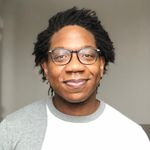
Bradley Craig, Assistant Professor of History, is a historian of early African American and Black Atlantic politics and culture. Broadly, his research examines the felt and embodied dimensions of diasporic belonging. His current book project, Oathbound: Sovereignty and Belonging in the Revolutionary Atlantic World, tells the story of Jamaica’s Trelawny Maroons and their forced migration to Nova Scotia and Sierra Leone following the Anglo-Maroon War of 1795-96. The book shows how the Maroons participated in an Atlantic political culture of oath-taking, binding themselves to a particular vision of imperial belonging and diasporic kinship. Other research in progress considers the sensory history of race and slavery in the Atlantic world.
Bradley teaches courses on African American history, the history of the Black Atlantic, historical memory and reconciliation, black queer and feminist studies, and histories of the body and the senses. He earned an A.B. in Studies of Women, Gender & Sexuality, an A.M. in History, and a Ph.D. in African and African American Studies from Harvard University. Prior to joining the faculty at BU, he was a Barra Postdoctoral Fellow at the McNeil Center for Early American Studies (University of Pennsylvania) and an Assistant Professor of History at Concordia University in Montréal, Quebec.

Matthew Creighton, Lecturer in Jewish Studies, is a scholar with specializations in German literature and modern Jewish culture. He is currently at work on preparing a book manuscript based on his doctoral dissertation, entitled “The Hidden Father and the Problem of Generations in Luther, Freud, and Kafka.” His writings have appeared in such publications as Religion and the Arts, Glossolalia, The Encyclopedia of The Bible and Its Reception, Sightings, The Journal of Religion, Religious Studies Review, and Reading Religion.
Creighton has been an instructor at the University of Illinois-Chicago, Elmhurst College, Dartmouth College, and the University of Chicago. He began teaching at Boston University in Fall 2021, and has led courses on Western culture, Holocaust Representation, and European and American rhetorical traditions.

Brooke Durham, Assistant Professor of History, is a historian of France and the French Empire. Her research approaches the end of the French Empire through local, interpersonal interactions in France and Africa after 1945. Dr. Durham examines how students, social workers, teachers, and international volunteers negotiated the politics of the Cold War, development, and decolonization.
Dr. Durham teaches courses on the French Empire and Modern European history. She advises graduate students working on Modern France, Europe, and North and West African history. Prior to coming to Boston University, she taught at West Virginia University. She earned a B.A. in History and and a B.A. in International Politics from Penn State, and an M.A. and Ph.D. in History from Stanford University.

Ben Finkel, Visiting Assistant Professor of Anthropology, is a biological anthropologist and primatologist with a focus on the evolution of senescence and life-history theory. His dissertation investigated the functional challenges of aging for wild chimpanzees at Ngogo in Uganda, where he has conducted field research since 2016. His research interests also include foraging behavior, dental wear, food mechanical properties, the social function of testosterone, and conservation psychology with a focus on media portrayal of primates. He is also keenly interested in the analysis and display of quantitative information and works extensively in R.
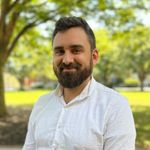
Jacob Kripp, Visiting Assistant Professor of Political Science, previously taught at Trinity College in Hartford, CT and at Johns Hopkins University where he received his PhD and was a Postdoctoral Fellow. At Boston University, he will teach classes on War, Peace, Racism, Memory, and International Relations.
Jacob’s research is at the intersection of Critical War Studies, Historical International Relations, Global Political Theory, and interdisciplinary studies of racism and empire. His research focuses on how ideas of war and peace are composed alongside the production of racial difference. He is currently working on two book length manuscripts. The first, entitled Race War, Racial Segregation, and Global Peace, unravels how and why racial segregation came to be imagined as the key to global racial peace in white world order from 1898 to 1935. Untangling how the idea of global peace was constructed through anxieties of global race war, this project demonstrates how racial “peace” entrenched global racial hierarchy through new forms of racial violence and spatial control across scales of international order. The second book project, entitled The Martial University, explores the reciprocal and mutually co-constitutive relations between imperial warfare and knowledge production in the early Cold War. This project tracks how the transformation of warfare into a mathematically calculable science dovetailed with new visions of higher education, weapons research, imaginaries of racialized combat in the Korean War, and structures of military Keynesianism within and beyond the university.

Sarah Miller, Assistant Professor of Sociology, in joint appointment with the Women’s, Gender, and Sexuality Studies Program at Boston University. Her work contributes to sociological scholarship on gender, sexuality, race, youth, education, and new media. Miller’s current book project, The Tolerance Generation: Growing Up Online in an Anti-Bullying Era (under advance contract with the University of Chicago Press), explores how intersectional inequalities and digital cultures shape young people’s experiences with bullying. Her upcoming work focuses on the gendered, sexual, and racialized dimensions of school shooting threats and their impacts on K-12 education.
Miller’s research has been published in Gender & Society, Sexualities, and the Journal of Youth and Adolescence and funded by the National Academy of Education/Spencer Foundation, National Science Foundation, and the American Sociological Association. As a public sociologist, she has worked on a variety of initiatives focused on advancing adolescent health and sexuality education policy in collaboration with the Public Engagement Project, Futures of Sex Education, and Advocates for Youth. Dr. Miller received her Ph.D. in Sociology from the University of Massachusetts, Amherst. At BU, she is the Director of Undergraduate Studies for the Women’s, Gender, and Sexuality Studies Program.

Erik Peinert, Assistant Professor of Political Science, is a comparative and international political economist, and his research focuses on the political economy of advanced industrial states and the politics of economic policymaking, particularly in the domain competition and market power. This incorporates diverse topics such as trade policy, industrial policy, and intellectual property, and draws theoretically from different disciplines, such at sociology, psychology, and economics. His book project, Monopoly Politics: Price Competition, Learning, and the Evolution of Policy Regimes (under contract with oxford University Press), seeks to understand why many industrialized countries have alternated in the long run between national policy regimes in favor of enforcing price competition on one hand, and supporting market power and domestic monopolies on the other.
Peinert completed his PhD in political science at Brown University in 2020. Prior to coming to Boston University, he was a research manager at the American Economic Liberties Project, a DC-based think tank focused on antimonopoly policy. He has had had research affiliations with the Rhodes Center for International Finance at Brown University, Johns Hopkins SAIS, the Center for European Studies at Sciences Po in Paris, and the Max Planck Institute for European Legal History.

Jane Pryma, Assistant Professor of Sociology, is a sociologist of health and medicine who explores how politics, medical technologies, and human rights shape what we know about pain and disability. Her work has appeared in the American Sociological Review, Social Science & Medicine, Journal of International and Comparative Social Policy, and Contemporary Sociology.
Pryma’s book manuscript, Pain (Mis)Management: The Rise and Fall of a Right to Pain Relief, argues that analyses of the opioid crisis focused only on pharmaceutical companies overlook the political economic conditions that encouraged politicians, pain specialists, the healthcare industry, and chronic pain sufferers to produce opioid-centric pain science and policies. Comparing French and U.S. pain management, she shows how networks of pain expertise, in two different healthcare and welfare systems, institutionalized a “right to pain relief,” shaping pain management practices, rates of prescription opioid use, and the credibility of pain science in each country.

Vance Puchalski, Visiting Assistant Professor of Sociology focuses on the separate and unequal world of financial services that persists in post-civil rights America. This work highlights the lived experiences of low-income populations that exist outside of the banking and credit mainstream, the so-called “unbanked,” “underbanked,” and “credit invisible,” revealing lesser understood reasons for banking status as well as informal means through which these populations meet their financial services needs.
Vance earned a Bachelor of Liberal Arts (Extension Studies) from Harvard University and a Master of Arts (Sociology) from Columbia University in the City of New York. From 2015-2017, he served as managing editor for City & Community, the quarterly, peer-reviewed journal of the American Sociological Association’s Section on Community and Urban Sociology. In addition to urban sociology and economic sociology, he is particularly interested in ethnographic methods.
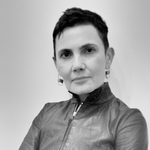
Jyothi Puri, Professor of Sociology, is a feminist sociologist whose research and teaching are enriched by the intersections of sociology, sexuality and queer studies, critical death studies, and postcolonial, decolonial, and anticolonial theories. Her work primarily focuses on the structural and institutional forms of regulation from the perspectives of marginalized subjects. Through her books and numerous essays, she explores how states and nations govern bodies, genders, sexualities, and death; examines the transnational aspects of governance shaped by colonial histories and postcolonial legacies; and strives to decenter Eurocentric theory and perspectives.
Her current research investigates how South Asian migrants, particularly Sikhs and Muslims, manage death in the U.S. and Canada, a project for which she received a Guggenheim Fellowship for 2022-2023. She is also working on a co-edited volume on anticolonial, decolonial, and postcolonial sociologies and a special issue on the sociology of death and mourning. Puri has served on the editorial collective for the interdisciplinary journal Foucault Studies, as deputy editor for Gender & Society, and is currently on the editorial board for the journal SIGNS. Her involvement with ASA includes past roles such as Chair of the Section on Sex and Gender, and she is currently Chair-Elect for the Global and Transnational Sociology Section. In recognition of her contributions to the field, Puri has been honored with the prestigious Jessie Bernard Award (ASA) in 2021 and the Simon-Gagnon Lifetime Achievement Award (Sexualities Section, ASA) in 2023.
 Steven Schwartz, Assistant Professor of Anthropology, is an environmental anthropologist whose research explores how the climate crisis and the global rise of renewable energy intersect with Indigenous peoples’ environmental relations, practices of resistance, and political and economic life in Latin America. Dr. Schwartz is developing his first book project, provisionally titled Wind Futures: Indigeneity, Aerial Worlds, and the Making of Renewable Energy in Colombia. This ethnography traces the multifaceted ways in which Indigenous Wayuu communities, energy experts, and state bureaucrats experience, negotiate, and shape the shift from fossil fuels to renewables in La Guajira– a coastal region in northeast Colombia and one of the windiest places on the continent. The manuscript shows the emergence of a form of “green” and racialized extractivism that recruits and transforms indigeneity as a crucial scaffold for wind power production and capital accumulation, as well as the multiple contestations it gives rise to. This work bridges debates in environmental and political anthropology, political ecology, science and technology studies, and Indigenous and Latin American studies.
Steven Schwartz, Assistant Professor of Anthropology, is an environmental anthropologist whose research explores how the climate crisis and the global rise of renewable energy intersect with Indigenous peoples’ environmental relations, practices of resistance, and political and economic life in Latin America. Dr. Schwartz is developing his first book project, provisionally titled Wind Futures: Indigeneity, Aerial Worlds, and the Making of Renewable Energy in Colombia. This ethnography traces the multifaceted ways in which Indigenous Wayuu communities, energy experts, and state bureaucrats experience, negotiate, and shape the shift from fossil fuels to renewables in La Guajira– a coastal region in northeast Colombia and one of the windiest places on the continent. The manuscript shows the emergence of a form of “green” and racialized extractivism that recruits and transforms indigeneity as a crucial scaffold for wind power production and capital accumulation, as well as the multiple contestations it gives rise to. This work bridges debates in environmental and political anthropology, political ecology, science and technology studies, and Indigenous and Latin American studies.

Arjun Vishwanath, Assistant Professor of Political Science, focuses on representation and public opinion in American politics.He is developing a book project that examines substantive representation through the lens of political values. Some of my ongoing research projects focus on the relationships between values and other political beliefs such as left-right ideology, issue stances, and feelings towards social groups. Another research agenda evaluates the effects of electoral institutions on representation. His work has appeared in the American Journal of Political Science and Studies in American Political Development.
He received his PhD from Harvard University in Government in 2023 and his BA from Swarthmore College in Political Science and Mathematics in 2016.

Madeline Williams, Lecturer in History, is a historian of disability and of the United States. Her work positions disability as both a kind of lived experience and as a powerful framework for analyzing politics and culture. She researches and teaches about disability as fundamentally intersecting and interacting with race, class, gender, sexuality, and more. Her current book project, Disability Democracy: Blind-Led Organizing and the Making of Modern America, tells the story of a crucial early chapter in the long history of social movement building around disability. It centers on the emergence and activities of political associations led by blind Americans.
Alongside her research, Williams engages in conversations about the promise of disability frameworks and practices for the pursuit of more just educational spaces and societies. Williams’s work has been supported by research and funding bodies including the American Historical Association (AHA); the Center for American Political Studies (CAPS); the Charles Warren Center for Studies in American History; the Consortium for History of Science, Technology, and Medicine (CHSTM); and the Weatherhead Center for International Affairs. She holds a B.A. from Swarthmore College and a Ph.D. from Harvard University.

Pamela Zabala Ortiz, Assitant Professor of Sociology, is a sociologist of race & ethnicity with a focus on migration, identity-formation, and Latinx communities in the U.S. Her research has focused on Afro-Latinidad, questions of race and racism within Latinx spaces, and constructions and contestations of Blackness in the U.S. and Latin America. Her work has been supported by the Social Science Research Council and the Russell Sage Foundation.
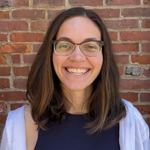 Anna Arpaci-Dusseau, Lecturer in Computer Science, is a full time Lecturer of Computer Science at Boston University. Anna’s area of expertise and interest lie in computer systems, systems security, and cloud security. She completed her undergraduate and master’s degree in computer science at MIT with an emphasis in computer systems. Anna‘s thesis work was in Graph Pattern Mining (GPM) and was entitled, “Approximate and Fast Graph Mining at Scale”. She also has industry experience working in cloud security. Anna aims to teach computer systems in an intuitive and hands-on manner through the lens of security-aware practices.
Anna Arpaci-Dusseau, Lecturer in Computer Science, is a full time Lecturer of Computer Science at Boston University. Anna’s area of expertise and interest lie in computer systems, systems security, and cloud security. She completed her undergraduate and master’s degree in computer science at MIT with an emphasis in computer systems. Anna‘s thesis work was in Graph Pattern Mining (GPM) and was entitled, “Approximate and Fast Graph Mining at Scale”. She also has industry experience working in cloud security. Anna aims to teach computer systems in an intuitive and hands-on manner through the lens of security-aware practices.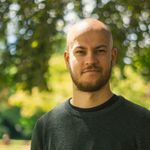 Alexander Bertoloni Meli, Assistant Professor of Mathematics & Statistics, works on Number Theory, Representation Theory, and their connections to the Langlands Program. He is perpetually fascinated by the geometry and representation theory of reductive groups. Previously he was a postdoc at the University of Bonn with Jessica Fintzen and the University of Michigan with Tasho Kaletha. Bertoloni Meli was advised by Sug Woo Shin at UC Berkeley and received his PhD in 2020 at the start of the pandemic.
Alexander Bertoloni Meli, Assistant Professor of Mathematics & Statistics, works on Number Theory, Representation Theory, and their connections to the Langlands Program. He is perpetually fascinated by the geometry and representation theory of reductive groups. Previously he was a postdoc at the University of Bonn with Jessica Fintzen and the University of Michigan with Tasho Kaletha. Bertoloni Meli was advised by Sug Woo Shin at UC Berkeley and received his PhD in 2020 at the start of the pandemic. Eric Chang, Lecturer in Mathematics & Statistics, received his B.S. in electrical engineering from Columbia University and his Ph.D. in mathematics from Boston University, working with Dr. Bob Devaney. Before joining Boston University, he taught in high school, at Northwestern University, and at Loyola University Chicago.
Eric Chang, Lecturer in Mathematics & Statistics, received his B.S. in electrical engineering from Columbia University and his Ph.D. in mathematics from Boston University, working with Dr. Bob Devaney. Before joining Boston University, he taught in high school, at Northwestern University, and at Loyola University Chicago. Ankush Das, Assistant Professor of Computer Science, was an applied scientist at Amazon AWS where he built tools for model checking distributed protocols. He completed his PhD from Carnegie Mellon University in 2021 where he worked with Prof. Jan Hoffmann and Prof. Frank Pfenning. He also worked as a research fellow with Akash Lal at Microsoft Research, Bangalore and a research intern with Shaz Qadeer at Meta.
Ankush Das, Assistant Professor of Computer Science, was an applied scientist at Amazon AWS where he built tools for model checking distributed protocols. He completed his PhD from Carnegie Mellon University in 2021 where he worked with Prof. Jan Hoffmann and Prof. Frank Pfenning. He also worked as a research fellow with Akash Lal at Microsoft Research, Bangalore and a research intern with Shaz Qadeer at Meta.
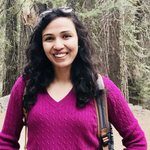 Deepti Ghadiyaram, Assistant Professor of Computer Science,
Deepti Ghadiyaram, Assistant Professor of Computer Science, Boqing Gong, Assistant Professor of Computer Science,
Boqing Gong, Assistant Professor of Computer Science, Nathan Klein, Assistant Professor of Computer Science
Nathan Klein, Assistant Professor of Computer Science






